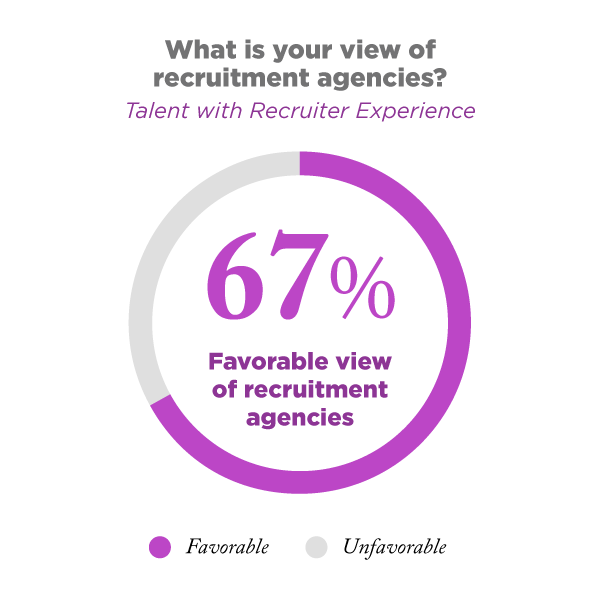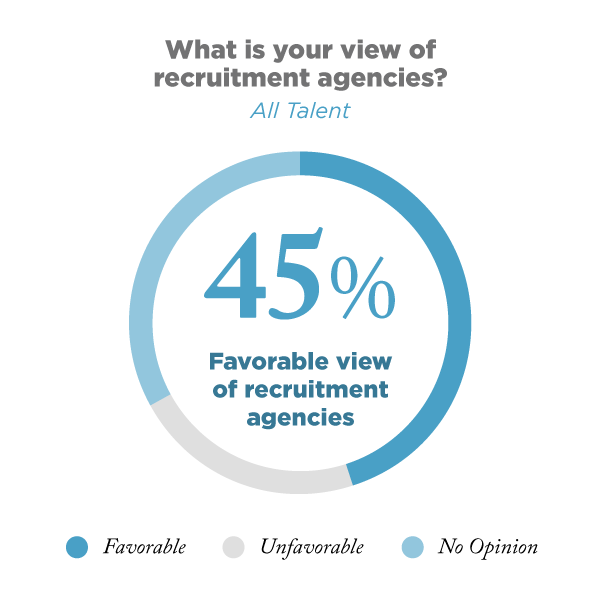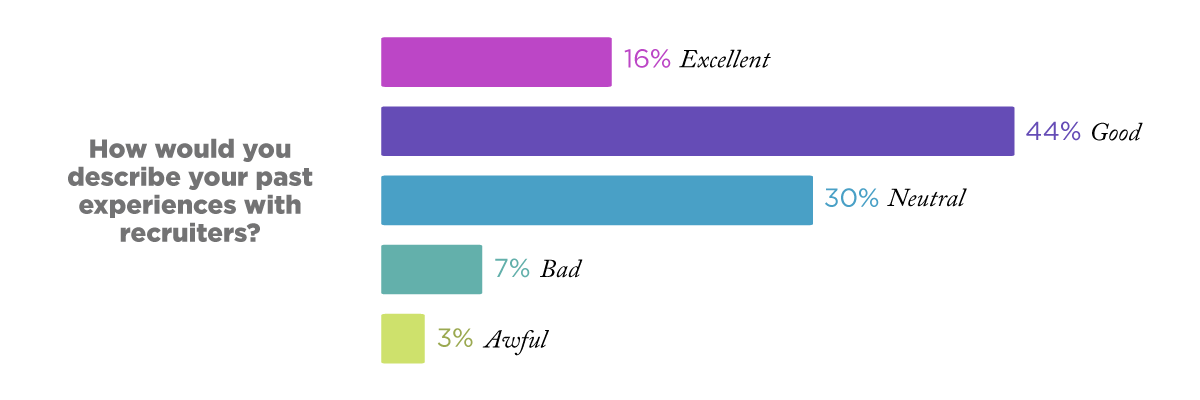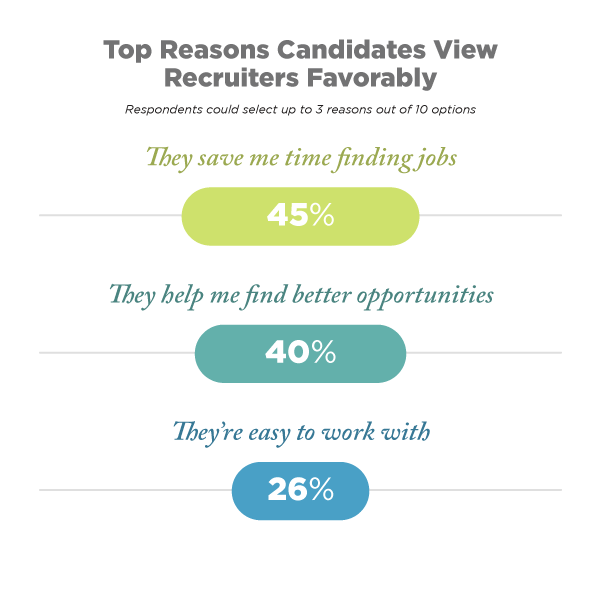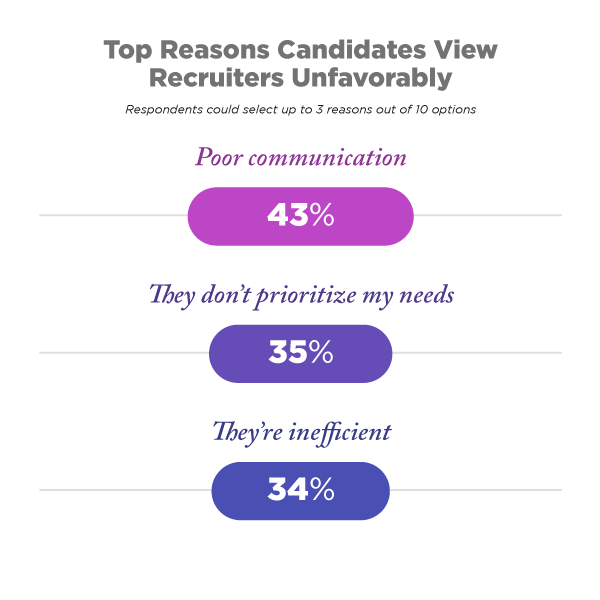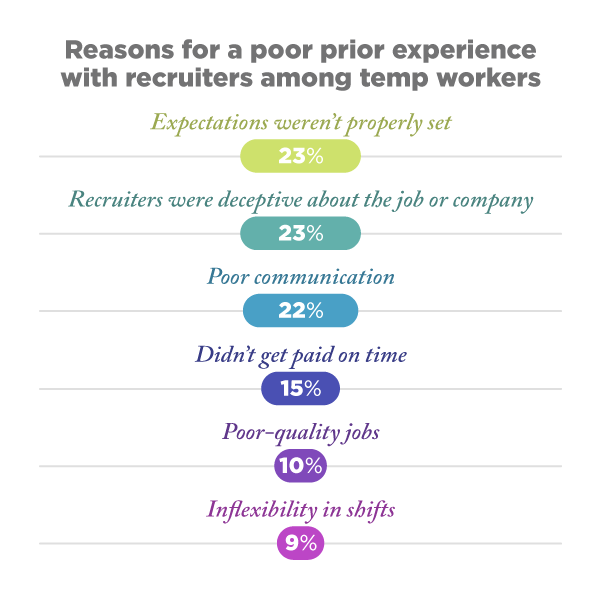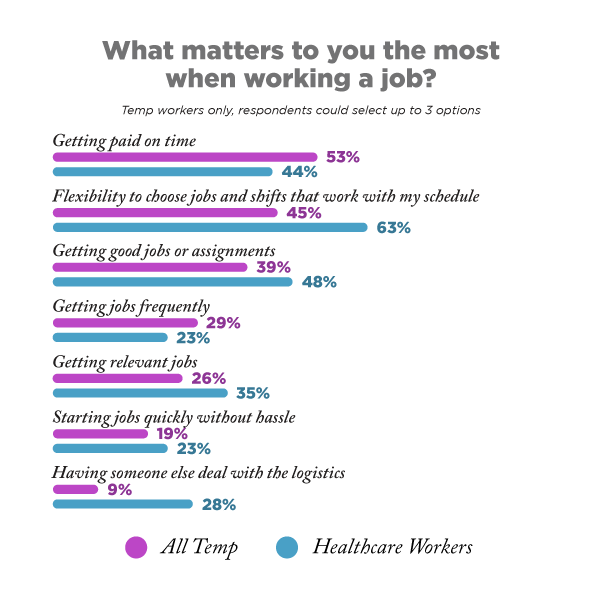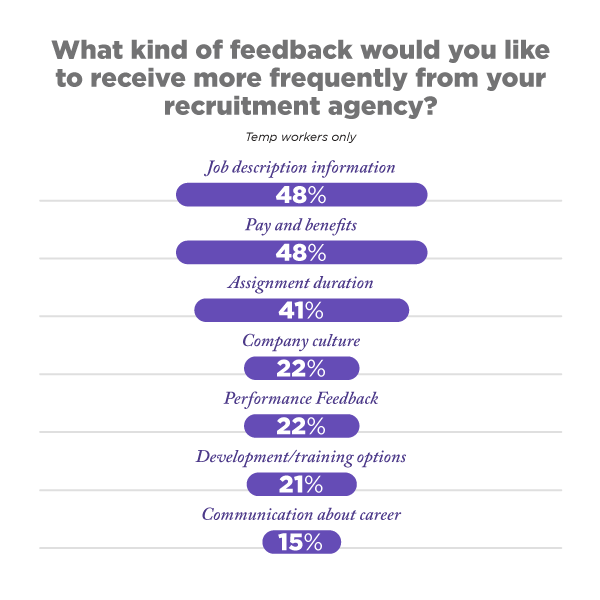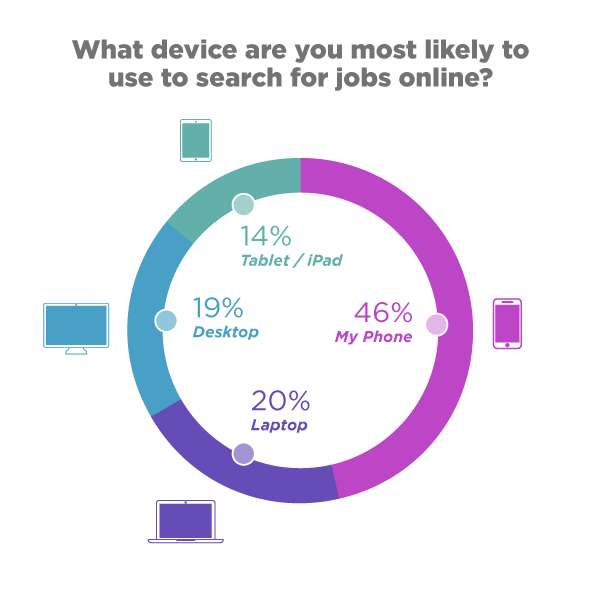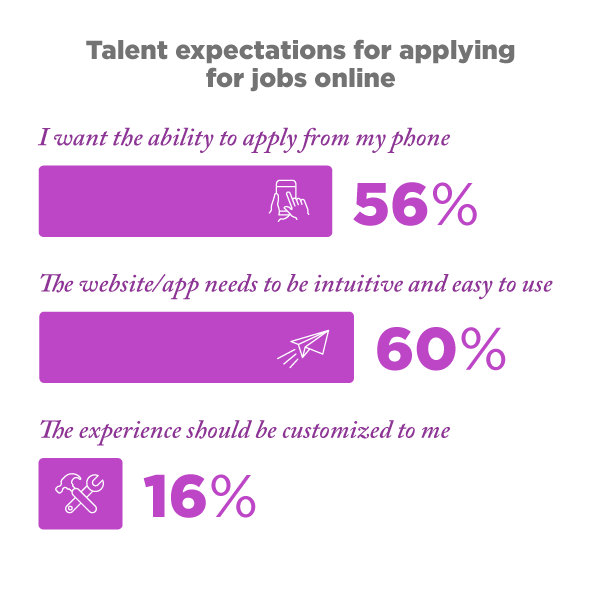The Talent Landscape Heading into 2022
Staffing firms have cited candidate acquisition as their top priority for 2022, but they face a series of obstacles standing in the way of their talent goals. The labor participation rate has taken a sharp decline since the beginning of the pandemic, and the top three challenges cited by recruitment professionals for 2022 all reflect a candidate-short environment complicating talent acquisition plans. Amidst the talent shortage, the number-one recruitment challenge for 2022, qualified candidates are at a premium. Additionally, most staffing leaders believe that implications stemming from COVID-19 will continue to cause candidate acquisition and placement hurdles. Finally, firms cite increased competition from each other and from non-traditional labor models. In 2020, when staffing revenue decreased 11 percent year-over-year, online talent platform revenue rose 25 percent. A growing number of workers have shifted to freelance work or taken a hiatus altogether; a record 4.4 million Americans quit their jobs in September.
The stakes for attracting qualified candidates have never been higher, but what should firms do to attract and retain talent? How does the talent pool feel about working with staffing firms and what actions can firms take to win over new—or redeploy existing—talent?
Candidates are increasingly mobile-first...
Nearly half of candidates use their phones to apply for jobs primarily through their phone and more than half cite the ability to apply their phone as an essential offering when applying for jobs online.
Nearly half of candidates use their phones to apply for jobs primarily through their phone. Unsurprisingly, the majority of talent look view mobile functionality as must when it comes to applying for jobs online.
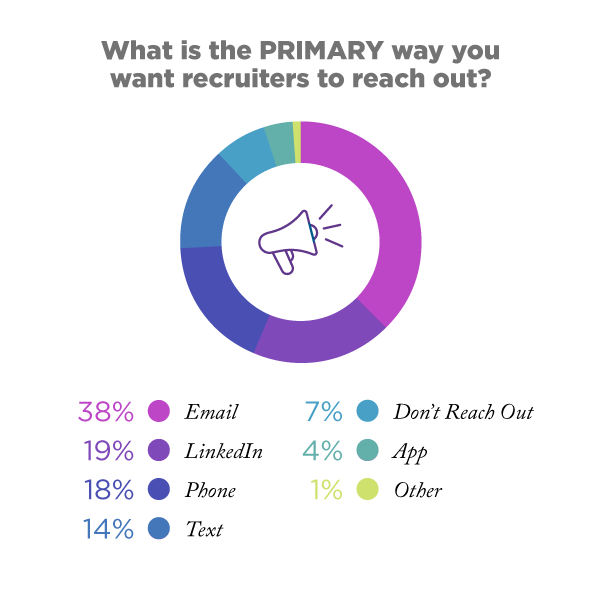
But they don’t want their experience limited to an app
While candidates increasingly use their phones and apps to apply for jobs, very few wanted their contact limited to an app. Additionally, only half of talent working with staffing firms have been walked through how to use the app to find jobs or placements.
Has your staffing firm explained how to use their website/app?
Yes
No
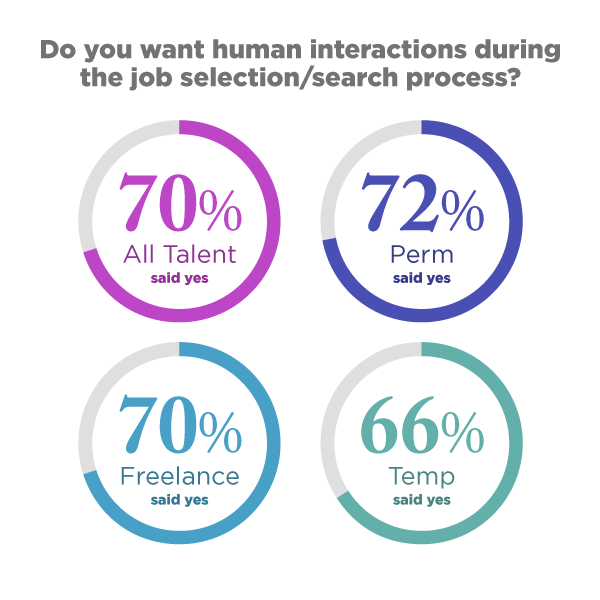
Furthermore, talent still want regular human interaction during the process of searching or selecting jobs with agencies, including freelance workers who use online talent platforms.
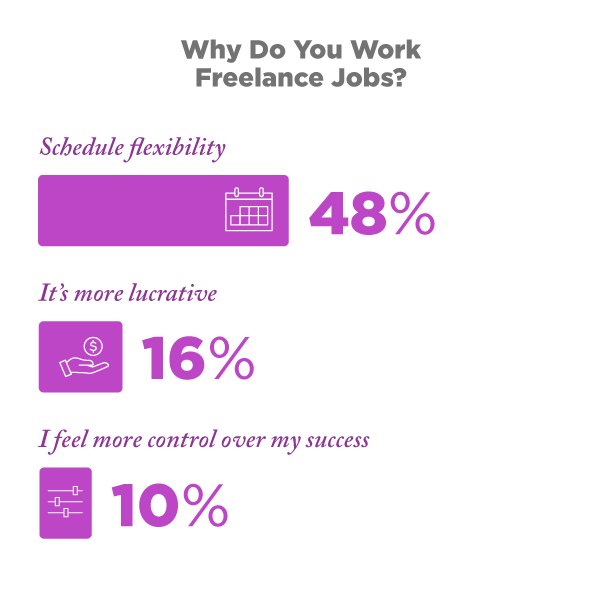
The dual desire for an efficient process that is still relationship-driven is especially pronounced in the findings for freelance workers. A staggering 93 percent of freelance workers said that it is easier to work with online talent platforms than it is with staffing firms. However, 60 percent of those workers said they actually prefer working with staffing firms and would make the switch if it was easier to work with staffing agencies.
Looking Ahead: Leveraging Digital Transformation to Meet the Moment
Staffing firms face a tremendous opportunity in 2022. After a challenging 2020, which saw two-fifths of staffing firms reporting year-over-year losses, the staffing industry witnessed a tremendous rebound performance in 2021. According to Staffing Industry Analysts, US staffing revenue will grow by 16% in 2021 to a record-high total of $157.4 billion. The industry is projected to grow an additional 4% year-over-year in 2022.
How can businesses position themselves to take advantage of the growth in the years ahead? The ability to find and attract talent will be a tremendous differentiator for firms that want to compete in the years ahead.
Firms that leverage digital transformation to automate, digitize, and empower the candidate experience will be in the best position to take advantage of this unique opportunity. Staffing businesses with a digital transformation strategy in place are 44 percent more likely to anticipate significant revenue gains in 2022 and 30 percent more likely to report above-average candidate sourcing performance.
The talent survey findings reveal that workers want to work with recruiters, but they will only work with firms that provide an efficient, effective process. Firms that leverage technology to streamline the stages of the candidate placement process that cause dissatisfaction and automate manual tasks to invest further in relationships will be well-suited to win candidates and meet their goals in 2022 and beyond.





